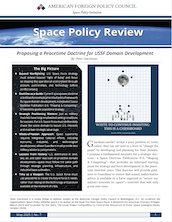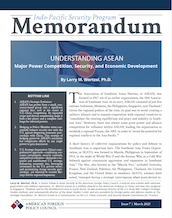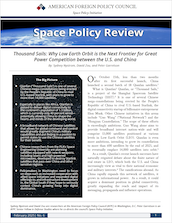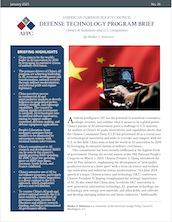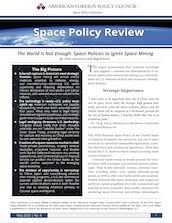
The World Is Not Enough: Space Policies to Ignite Space Mining
This paper recommends that Congress encourage and support a commercial demonstration of asteroid capture and resource harvesting as a critical element of U.S. national security and economic development strategy.
